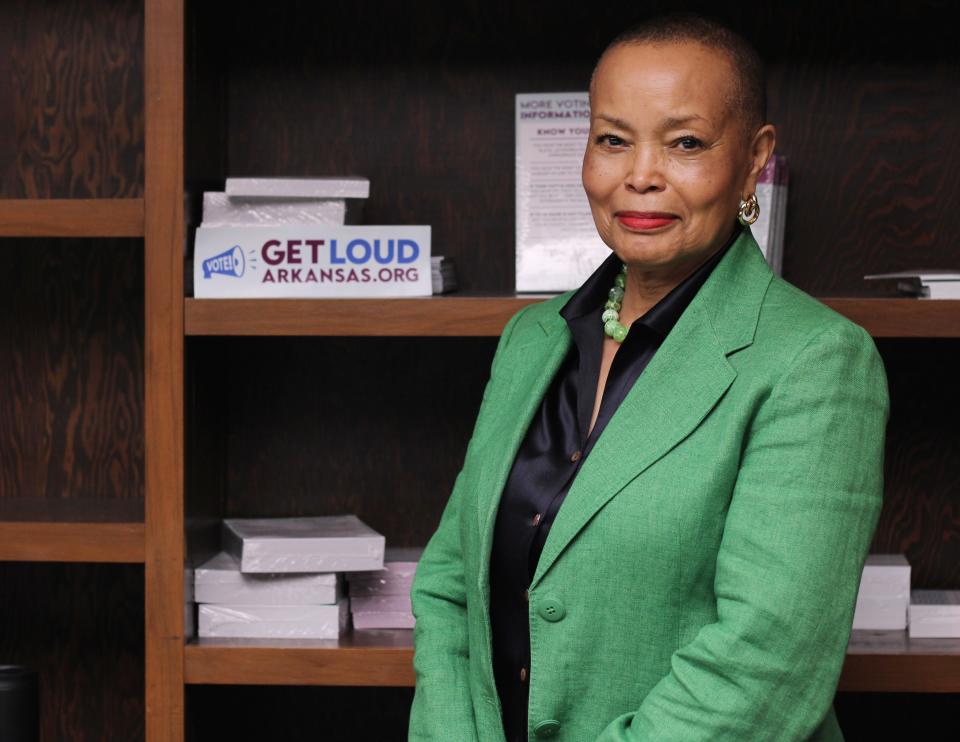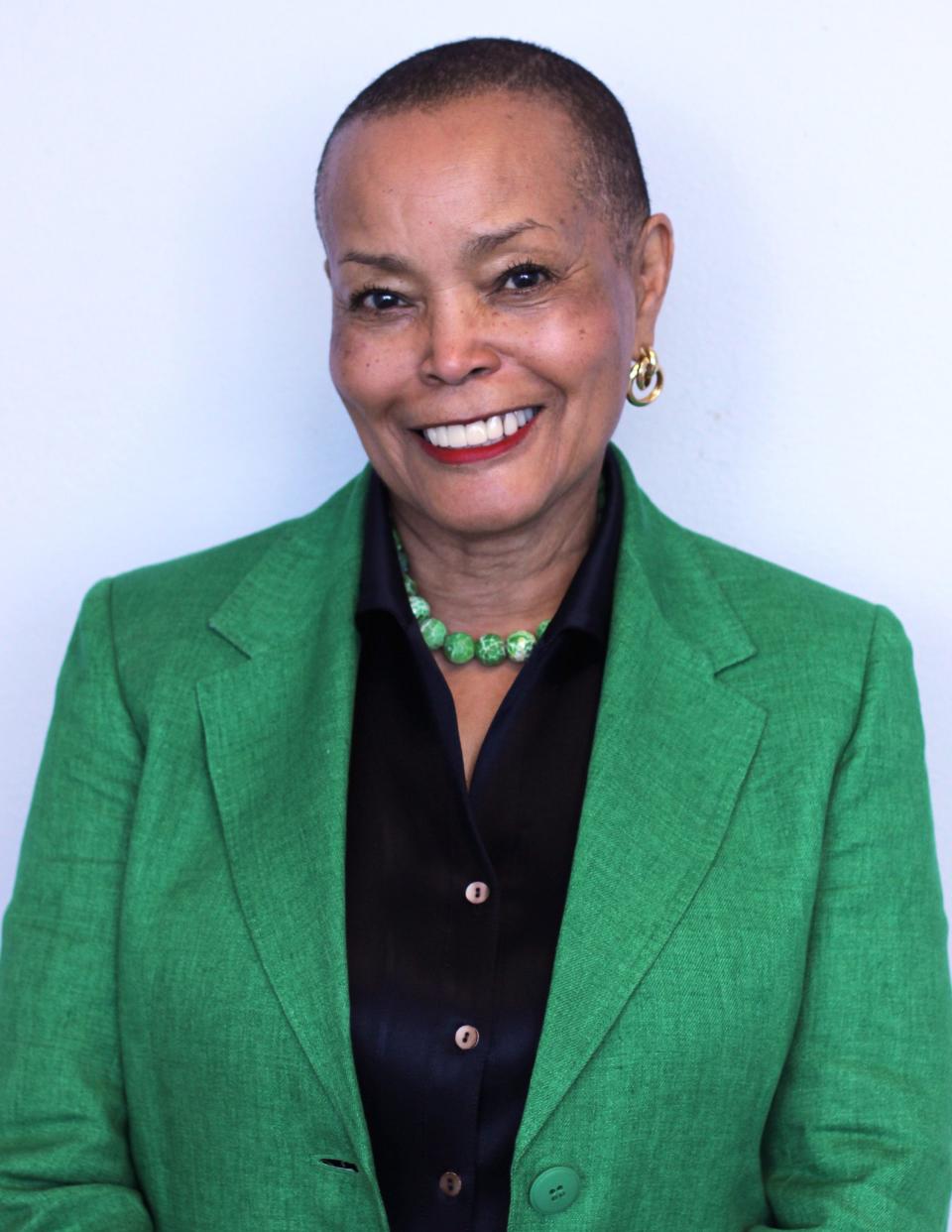Women of the Year: Arkansas' Joyce Elliott says fairness drove her as legislator, teacher
- Oops!Something went wrong.Please try again later.
Joyce Elliott is one of USA TODAY’s Women of the Year, a recognition of women who have made a significant impact in their communities and across the country. Meet this year’s honorees at womenoftheyear.usatoday.com
Joyce Elliott has left an indelible impression on Arkansas’ legislative landscape with her commitment to public service, education reform, and social justice.
Born and raised in the rural South, Elliott’s journey from segregation to desegregation to the halls of the state legislature is a testament to her resilience, dedication to others, and vision for Arkansas. Her pursuit of policies to bridge divides — whether racial, economic, or educational — distinguishes her career in the legislature.
Her path to politics was sparked in childhood and honed as she taught high school Advance Placement and standard courses in Arkansas, Florida, Minnesota, and Texas. She left the classroom in 2004 but continued her work with the College Board to expand AP classes for underrepresented students.
Elliott’s legislative efforts as a state senator (2009-23) and a member of the Arkansas House of Representatives (2001-07) were guided by her holistic approach to addressing the symptoms of the issues and the underlying causes with a focus on health care, affordable housing, and civil rights.

She has been active with the Democratic Party at the local, state, and national levels and served as the first vice chairman of the Democratic Party of Arkansas, a member of the Democratic National Committee and its Resolution Committee.
Elliott has received numerous awards, honors, and distinctions for her service to the people of Arkansas and has served on several boards, including the Central Arkansas Library System. She continues to shape the political discourse in Arkansas and beyond. She is being highlighted as one of the Women of the Year for 2024 by the USA Today Network.
Who paved the way for you?
"It was the people I grew up around," Elliott said. "I was incorruptibly curious when I was nine or 10 years old. I made it my business that if someone needed something, I would get it for them so I could get closer on the porch to hear what concerned them."
It was during those conversations on the porch she learned about John F. Kennedy and the civil rights movement, which "made me want to get into politics without knowing what I was signing up for," she said. "I knew I wanted to be an activist to make Arkansas better."
What is a memorable moment in your life?
"I decided early on that I was going to college. I knew we did not have the money to send me, but I was determined to do it," Elliott said. "I learned in the fourth grade that if you graduate from high school as the valedictorian, you get celebrated and they announce your scholarships. I was determined to move to the top of my class and was set on maintaining that."
Elliott was in ninth grade when schools were desegregated.
"I was going to an all-Black school, and we had wonderful teachers, and now the adults were going to break up our school and sprinkle us among four white schools," she said. "... Shortly after I got to the new school, I was challenged by a superintendent and the principal about how I got my grades. They assured me during that meeting I was not ever going to be the valedictorian. That was a bad day, and it still feels that way."
How did that moment impact you?
"It made me hyper-aware that kids should have the opportunity to be exposed to others because they are going to grow up and live with other people," said Elliott, who after graduating college sought a job at a school that had never had a Black teacher.
"My first year (as a teacher) was a wonderful experience," she said. "I created a course at my high school, working with the superintendent, the principal, and the other curriculum instructors to create a class that teaches history through literature. That included African-American, Jewish, and Native American writers. Nobody was upset about it. The students loved the class. I didn’t feel welcome when I had to change schools, and I wanted all my students to feel welcome ...
"I think it’s a mistake to only learn about everything we have in common. You remember more if you know the differences."

Do you have a guiding principle or mantra?
"My mantra comes from Ralph Waldo Emerson’s — listen to your heartstrings," said Elliott. "His was 'every heart vibrates to that iron string' and that everybody should listen to that string. It was difficult for a 10th-grade girl to understand it entirely on her own, but it has stayed with me.
"However, that isn’t enough. I have discovered I have to have balance in everything that I do — balancing what my heart and head are saying as well. I feel balanced in what I do. I only have one bumper sticker now, 'Walk in balance.' You treat people better and do better to yourself when you have that balance."
Who did you look up to?
"I looked up to my mother and grandmother. They were people who were Southern women who made their way through tough times. I could look at them and see that it’s a tough way to go," Elliott said. "That’s not a negative about them. They didn’t have the opportunities they should have. I know I have to do better because they didn’t have those chances."
What advice would you give your younger self?
"I guess I would tell her … be more playful and not so serious all the time," Elliott said. "Even in high school, I didn’t date. I always thought, 'What’s wrong with me?' I was so serious about my life and moving ahead, which was important to me. I did not have that balance of being serious and having fun."
How do you engage with and represent diverse viewpoints?
"My favorite way of working with others is collaboration," Elliott said. "If you compromise, you give up something, I give up something, but it does little to solve the problem. Collaboration is a way to solve problems, get to know the other person and the other side, understand the issues, and look hard at what you’re doing ...
"Growing up as a Black girl and a Black woman in Arkansas showed me how important collaboration is. It may also be one of the reasons I was so serious. It mattered why people couldn’t allow children to learn about others. I have that picture of Ruby Bridges surrounded by four big men. All she’s trying to do is go to school. That still amazes me."
What legacy do you hope to leave behind, both politically and personally?
"When I pass from this world, I often tell people that I hope on the headstone it has, 'She worked hard and she was fair,'" Elliott said. "The fairness part is the most important to me. I don’t think it should be difficult to be fair to people."
This article originally appeared on Springfield News-Leader: Arkansas legislator Joyce Elliott among USA Today Women of the Year

